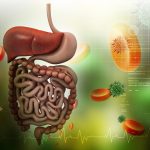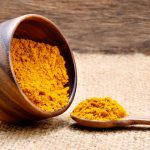Irritable Bowel Syndrome is common, affecting at least 15% of the adult population. IBS is a chronic disorder manifested by changes in bowel habits and recurrent abdominal pain.
Some affected by IBS have loose stool, some have constipation, and some have both at different times. Other symptoms include bloating, passage of mucus during bowel movements, and a feeling of incomplete emptying or cramping following a bowel movement. The diagnosis requires a good history and physical from your doctor and possibly further labs or diagnostic tests.
If you are diagnosed with IBS, you can be reassured that this condition does not lead to cancer.
Why do I have IBS?
Although theories as to the cause of IBS abound, we still do not know its cause. There are associations with altered motility of the colon (the usual muscle contractions of the intestines are either too fast or too slow) and altered visceral sensation (your body’s sense of how full your intestines are), which certain dietary irritants may worsen. IBS may be associated with psychosocial dysfunction such as childhood or domestic abuse, or a psychological disorder such as anxiety or depression. Stress can affect anyone’s intestines, and although it may play a major role in how IBS is experienced, it is not the cause.
What is the treatment?
As with many other disorders, prevention is the key. By effectively managing stress levels, exercising, drinking plenty of water, eating a high-fiber diet, and avoiding foods that seem to aggravate symptoms (e.g. beans, cabbage, and caffeine), often the need for daily medications is avoided.
For all with IBS, and especially those with a strong constipation component, a high-fiber diet that includes ½ to 1 cup of bran daily is important. Fiber supplementation with psyllium (e.g. Metamucil) ½ to 1 tablespoon one to three times daily in a large glass of water or juice, or calcium polycarbophil (e.g. FiberCon) 2 tablets one to four times daily followed by at least 8 ounces of water may be necessary and, if effective, should be used on a regular basis. Some people may experience temporary bloating after starting on fiber supplementation. This usually passes within two to three weeks.
Scheduling toilet visits at the same time everyday can be helpful. Certain prescription-only osmotic laxatives (e.g. Duphalac or Sorbitol) help the constipation but may also increase bloating. Stool softeners (e.g. Colace) 50-200 mg daily can maintain a good stool consistency. Medicines that calm the bowels or speed the propulsion of foods are helpful for some with severe symptoms.
Antidiarrheal agents (e.g. Imodium A-D) one or two 2mg caplets three to four times a day are used in those who have a strong diarrhea component.
Antidepressants, which have multiple uses including effective headache and back pain treatment, can be used when pain is a predominant complaint. Even with no treatment, symptoms disappear in over 30% of those affected as they get older.
The most important component of treatment in IBS is establishing a therapeutic, communicative and trusting physician-patient relationship. Periodically completing a symptom diary to review with your doctor may help identify factors that can aid your treatment.
Psychological treatments, which have studies to support their use, include relaxation training, cognitive behavioral therapy, hypnosis, and individual psychotherapy.
IBS is a chronic condition that has no cure. However, there is hope that IBS patients may be symptom-free for long periods of time.









